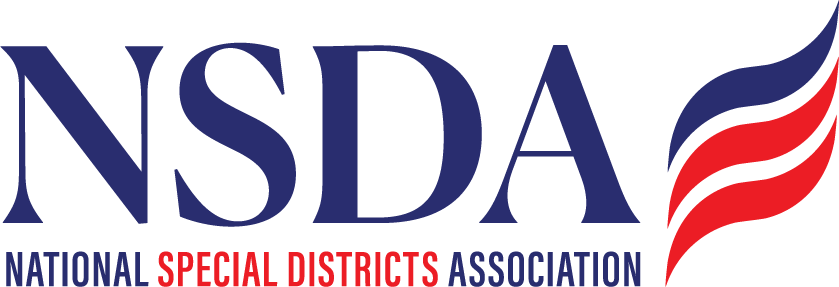11.11.2025 Update on the current Federal Shut down
The Hidden Impacts of a Federal Shutdown on America’s Special Districts
It appears the current Federal Shut down is coming to and end and NSDA will continue to keep special distircts apprised of key developments. The bill - which has now passed the Senate (60-40), would fund Military Construction, Veteran Affairs, Legislative Branch, and the Department of Agriculture and its programs through September 30. Under the legislation, the rest of the federal government will be funded via a CR through January 30 of next year. It will be all those other departments and agencies that will be the subject of negotiations for a final budget deal. The House is expected to pas the bill tomorrow (Wednesday 11.12.2025).
Thank you for your responses to the special district impacts survey. During the recent federal government shutdown, over 100 districts from across the country responded to better understand how interruptions at the federal level affect local service delivery. The results reveal widespread disruption, frustration, and uncertainty that ripple far beyond Washington, D.C.
Who Responded
Among the 115 survey respondents, the largest group represented natural resource and conservation districts (42%), followed by utilities such as water, sewer, and drainage districts (21%) and fire and emergency services districts (17%). Respondents came from 15 states, including major participation from Illinois, Texas, and Kentucky.
Federal Connections and Disruptions
Nearly one-third of districts reported direct impacts from the shutdown, with the most common being frozen federal grants and reimbursements (reported by 32%) and loss of access to federal data or systems (16%). Others cited construction delays, permitting backlogs, and halted regulatory processes. For many districts that operate in partnership with federal agencies like USDA, EPA, FEMA, and DOT, even short-term shutdowns created cascading consequences. One district noted, “We cannot access federal files or reimburse producers for conservation programs such as CRP. The shutdown stops us dead in our tracks.”
Another respondent explained that while their own operations could continue temporarily, partner agencies and communities were suffering, particularly as staff were furloughed and project timelines pushed indefinitely.
Financial and Operational Impacts
Financially, nearly 60% of respondents rated the shutdown’s impact between moderate and severe. Several districts reported having to dip into reserves to keep construction projects moving or to maintain staff while awaiting reimbursements. Others worried that prolonged delays could force layoffs or the cancellation of key conservation and infrastructure projects.
A recurring theme across responses was the dependence on federal partnerships—especially for conservation, natural resources, and rural infrastructure. Co-located offices, shared technology, and federal communication systems meant that when federal facilities closed, district employees were literally locked out of their workplaces. “We aren’t able to work on agreements or be paid for previous work because the federal systems we use are offline,” one soil and water conservation district reported. (1 no impact - 5 Severe impact)
Continuing Essential Services
Despite these challenges, most districts emphasized their commitment to maintaining essential services like water supply, sanitation, and emergency response. Yet the strain was clear: “We are trying to sell equipment to a fire department waiting on funds from a federal agency,” one respondent shared. Others noted delays in flood protection projects and emergency service reimbursements.
What Districts Need from NSDA
When asked what kind of support would be most helpful, respondents overwhelmingly called for direct advocacy to Congress and federal agencies (32%), along with timely updates on funding status and guidance on contingency planning.
As one district leader summarized, “We need a stronger voice in Washington to make sure local services don’t get caught in political gridlock.”
Through this survey, NSDA underscores the essential truth: when the federal government shuts down, local communities pay the price. NSDA remains committed to amplifying the voices of special districts and ensuring their stability, resilience, and recognition in federal policy decisions.
